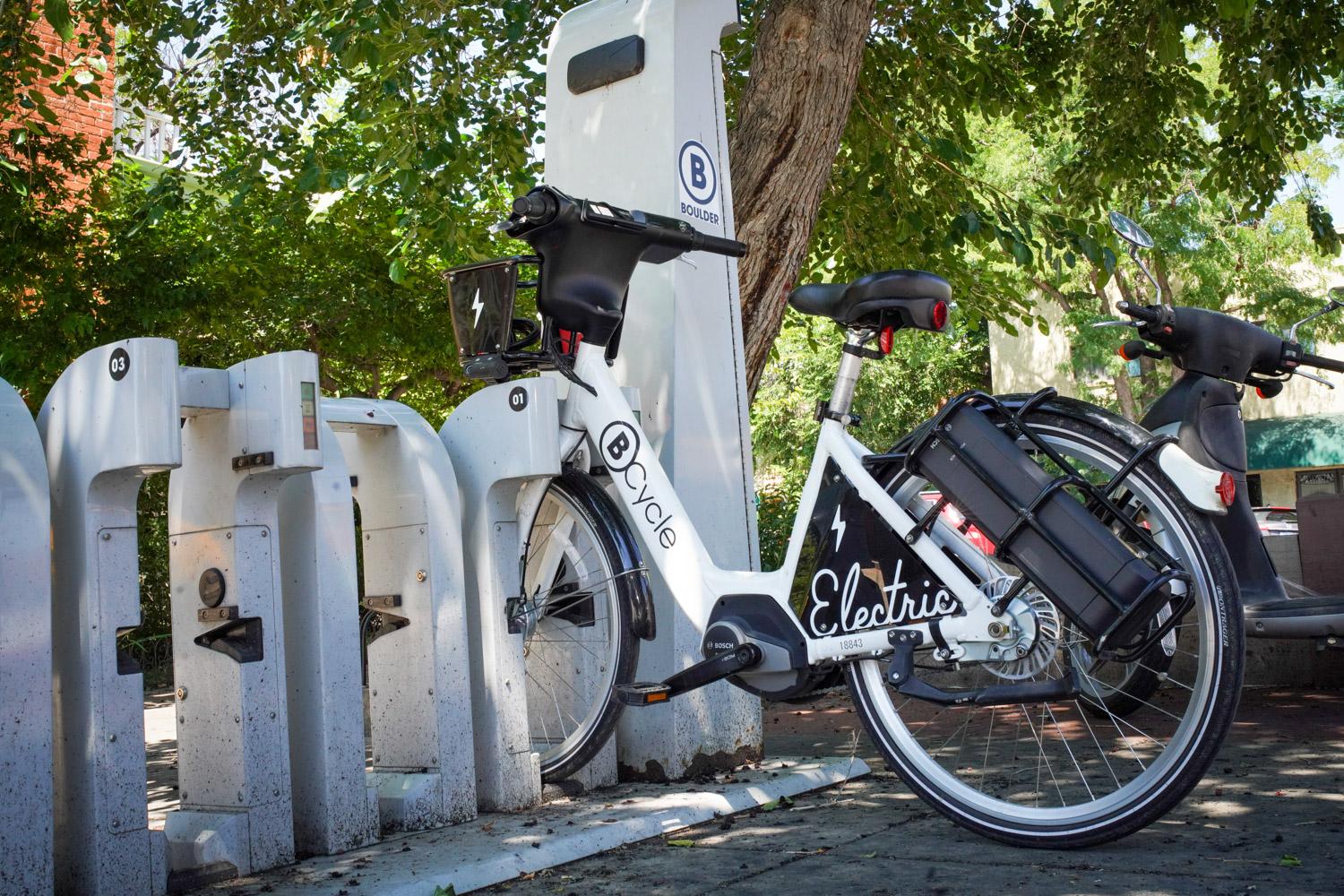
It's official: Colorado will launch one of the country's largest statewide e-bike rebate programs in August.
The Colorado Energy Office announced details of the program Thursday. Once it's rolling, Colorado residents making less than 80 percent of their county's area median income are eligible for a $1,100 discount off an e-bike. Residents making 80-to-100 percent of their area median income can receive a $500 rebate.
A growing number of state and local governments have embraced e-bikes to help tackle air pollution and climate change, but few have gone as far as Colorado. With $6.6 million in funding, the new discounts amount to the biggest statewide e-bike program outside of California, according to data from Portland State University. And it's just a preview of e-bike tax credits for all residents set to go live next year.
"Our ultimate goal is to get e-bikes out on the streets," said Sarah Thorne, a senior program manager at the Colorado Energy Office. "Hopefully, they'll be out there using those bikes, which will translate to lower greenhouse gas emissions."
Here's how to get the discount
Colorado residents can use these charts to see if they fall below their county's 80-percent AMI threshold— for the $1,100 discount — or their county's 100-percent AMI threshold for the $500 discount.
Additional incentives are available for cargo e-bikes or adaptive e-bikes for riders with specific physical needs. Qualifying residents can also get $100 to purchase a bike helmet and lock.
Not everyone is guaranteed one of the incentives. After applications open in mid-August, Thorne said residents could apply for e-bike rebates one week each month. The Colorado Energy Office will then run a lottery to award vouchers redeemable at participating bicycle shops.
The statewide program wants to improve on Denver’s highly competitive e-bike rebates
The lottery system attempts to improve on Denver's successful e-bike rebate program. Since April 2022, the city has awarded more than 5,500 e-bike rebates and inspired similar programs nationwide.
But Denver hands out limited rounds of vouchers on a first come, first serve basis. The result is a rush to the city's website each morning applications open. And unless residents have their paperwork in order, they often fail to submit their information before their fellow Denverites exhaust the available rebates.
Thorne said the state designed its system to avoid that scenario and ensure residents can apply regardless of their work schedule and internet connection. She expects the program will award enough vouchers to fund about 1,000 e-bike purchases each month and will last until funding runs out.
Those lucky enough to win one of the discounts can redeem them at select e-bike retailers. The Colorado Energy Office is reviewing applications from bike shops hoping to participate in the program and expects to publish a final list around the end of July. Thorne said she hopes to include not only rural brick-and-mortar shops but also online retailers, which tend to offer cheaper e-bike options.
Residents in cities and counties with existing e-bike programs can’t combine the state incentives with local rebates.
E-bike rebates could lead to more bike lanes
State lawmakers greenlit the program last year by passing SB22-193, which established a range of new programs to help reduce local air pollution.
In addition to the latest rebates, the law funded grants for local government and nonprofits to establish e-bike programs to benefit low- and moderate-income Coloradans.
Like with other e-bike rebate efforts, Thorne said there's a political goal within the climate-minded policy. If all goes according to plan, it will help build a vocal constituency of riders pushing local governments to construct new bike lanes and trails.
Thorne said that could offer an escape from a common "chicken-and-egg" problem, where cities often aren't sure if they need to wait for more cyclists to add infrastructure or if those accommodations would bring more cyclists onto the streets.
"I don't have much control of the infrastructure part of it, but as we get more and more bikers out on the road, I think infrastructure will follow," Thorne said.








